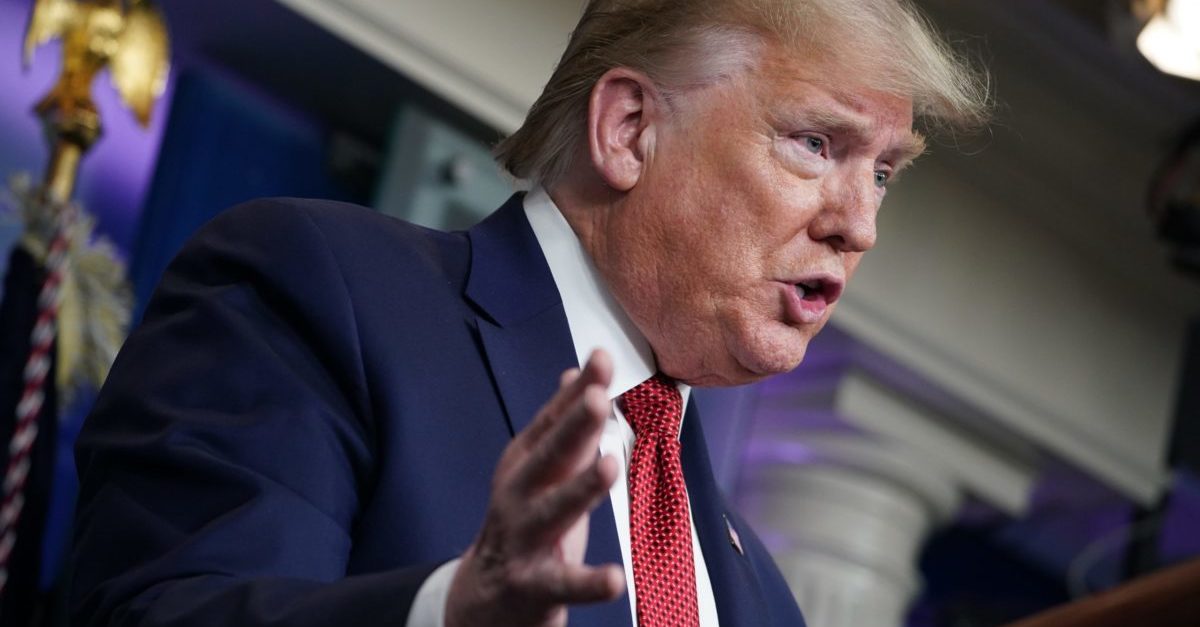
The U.S. Supreme Court on Monday ordered the parties in President Donald Trump’s tax return cases to file additional supplemental briefs addressing whether the court is the proper venue for such controversies. The court directed the parties to specifically address whether the “political question doctrine or related justiciability principles bear on the Court’s adjudication of these cases.” Legal experts immediately pondered what could motivate the justices to issue such a directive at this stage in the protracted litigation.
The political question doctrine, a subset of the broader justiciability doctrine, refers to the idea that an issue cannot be decided by a court if the Constitution supports the premise that the issue is for other branches of government to decide. The Supreme Court frequently punts cases involving the executive branch under this doctrine.
The main issue in the combined cases is whether the U.S. House of Representatives had the authority to issue a subpoena for the president’s financial records from his accounting firm, Mazars USA, and from two banks: Deutsche Bank and Capital One. Investigators on the House Financial Services and Intelligence Committees issued the subpoenas as part of a new money laundering and government ethics-related legislation.
The president and his lawyers have argued that there is no legitimate legislative purpose for seeking Trump’s financial records other than to use them against him politically.
A major roadblock for Trump’s arguments has been that the subpoenas were issued to third parties, not the executive branch, giving the president limited authority to assert his arguments.
Georgetown University Law Center professor Marty Lederman said there was “good reason” as to why the issue of justiciability was never brought up in the litigation.
“There’s good reason that none of the parties, nor the United States, nor any of the judges below, has ever suggested nonjusticiability,” he said. “Or, more to the point, there’s no reason any of them ought to have done so.”
University of Texas law professor Stephen Vladeck noted that the court’s directive may portend an unfavorable decision for Trump.
“I don’t think there’s any obstacle to [the Supreme Court] reaching the merits of these cases. But if the Court says that there is, that’s actually bad for Trump—as he’s the one who’s suing to try to block Mazars/Deutsche Bank from voluntarily complying with these congressional subpoenas,” he wrote. “In the process, the Court might therefore make it impossible for Trump to block voluntary compliance with these subpoenas by third parties, but also for Congress to use the courts to mandate involuntary compliance with congressional subpoenas going forward, a la [the Don McGahn case].”
In McGahn, a lower federal court ruled that the judicial branch does not have the power to enforce a congressional subpoena on the executive branch.
Vladeck’s opinion was echoed by Case Western Reserve University School of Law professor Jonathan H. Adler.
“What does this mean? Perhaps that some justices think the courts should neither enforce nor obstruct the subpoenas,” Adler wrote. “This would be an interesting way for Trump to lose, for I doubt Mazars or DB would deny Congress, though [the White House] might.”
[Photo by MANDEL NGAN/AFP via Getty Images.]